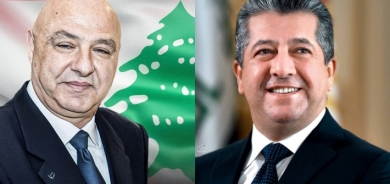Obama aide tells Israel of Iran attack plan in secret briefing

The Haaretz newspaper said that the U.S. adviser - Thomas Donilon - had described the plan in talks with Netanyahu earlier this month.
A senior Netanyahu aide, Harel Locker, refused to comment on the report when asked about it in an interview with an Israeli radio station. Another Israeli official reached by telephone, said “we do not comment on closed-door diplomatic meetings”.
Haaretz said the secret briefing was the most significant effort by high-level U.S. officials who had visited Israel in the past month, including Secretary of State Hillary Clinton, to try to dissuade Israel from launching its own military strike on Iran.
The report coincided with a visit to Israel by Obama’s main rival in his reelection bid this November, Republican candidate Mitt Romney, who is due to meet Netanyahu on Sunday.
Quoting a senior U.S. official it said spoke on condition of anonymity, Haaretz said Donilon had told Netanyahu the Pentagon was planning for a possible decision to attack Iran’s nuclear sites, and had shown him some of the plans.
In their talks, the same official said Donilon had also detailed the U.S. military’s ability to penetrate nuclear facilities buried deep underground, and had said that such contingency plans were being drawn up in case of a possible deadlock in diplomacy with Iran.
However according to Haaretz, another U.S. official involved in the talks with Israel said that “based on the intelligence we have, we think there is still time for diplomacy, and the time for a military operation against Iran has not yet come.”
The secretary of the U.S. Air Force, Michael Donley, told the Capitol Hill Club last week that the force's new bunker buster bombs were ready for use if needed, the paper added reported.
In recent months, the bombs, each weighing 15 tons, have undergone technical improvements and are intended for fortified bunkers deep underground where chemical or nuclear weapons are stored. This would include the uranium enrichment facility Fordu, hidden deep inside the mountains near the Iranian city of Qom.
Israel, the U.S. and most other Western nations are convinced that Iran is racing to create an atomic weapon of mass destruction, which it may then aim at the Jewish State.
The Islamic Republic has continued its nuclear development activities despite increased sanctions and four resolutions by the U.N. Security Council condemning Iran for its defiance of the ban on its nuclear development.
There are currently 11,000 centrifuges active in enrichment facilities" in Iran, Iranian President Mahmoud Ahmadinejad was quoted by state media as saying late on Tuesday in a meeting with supreme leader Ayatollah Ali Khamenei and senior regime officials.
That was more than the 10,000 centrifuges Iran was last said to have had operating, according to a May 25 report by the International Atomic Energy Agency (IAEA).
The failure of talks between Iran and six world powers to secure a breakthrough in curbing what the West fears is a drive to develop nuclear weapons has raised international concerns that Israel, widely assumed to be the Middle East’s only nuclear-armed state, may opt for a go-it-alone military strike.
Israel has warned the West it thinks it is only a matter of time before Iran’s nuclear program achieves a “zone of immunity” in which bombs will not be able to effectively strike uranium enrichment facilities buried deep underground.
Iran says its program is solely for peaceful purposes.
On a visit to Jerusalem this month, Clinton said Israel and Washington were “on the same page” with respect to Iran, calling Iran’s latest proposals to world power talks on the issue “nonstarters.”
“Our own choice is clear, we will use all elements of American power to prevent Iran from obtaining a nuclear weapon,” Clinton said.
Reuters













